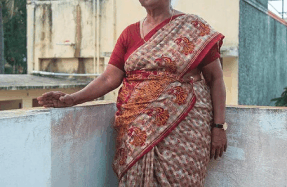SITES OF BATTLE


ONE DAY IN EARLY APRIL, after contemplating a shelf of local literature for an essay reflecting on the tenth anniversary of the official end of the Sri Lankan civil war, I walked through a Colombo neighbourhood, in defiance of the exceptional heat, giddy with joy to know again so comfortably the city of my childhood. The ease with which I moved through the streets was snatched away from every person in the country when churches in three locations around the island—Colombo, Negombo and Batticaloa—were attacked by suicide bombers on Easter Sunday, killing and injuring hundreds. These attacks were followed a few weeks later by anti-Muslim riots, and an elevated state of tension and distrust that persists months later. The pre-existing communalist sentiments that had preceded the attacks saw a sharp and more explicit rise.
These events spun the island’s people, within and afar, into a mix of horror at what was unfolding and a complex sense of trauma at how recognisable that horror is, and at the same time, different. Reading three recently-published novels, by authors of differing backgrounds and positionalities—Sharmila Seyyid’s Ummath (2014, English translation by Gita Subramanian, 2018), Rajith Savanadasa’s Ruins (2016) and Anuk Arudpragasam’s The Story of a Brief Marriage (2016)—set at the end of 26 years of war as events unfolded anew, I was intrigued by the foreshadowing they seemed to contain. Ummath explores women’s issues through the eyes of two cadres and an activist, Ruins looks at the frustrations of domesticity even when ordinary people can afford to look away from the conflict and The Story of a Brief Marriage looks at life and death at the furthermost periphery of the bloodshed. The books affirmed, in entirely different ways, that violence often emerges out of a long and unremembered shadow, and begets more violence as its legacy.
Ummath stands at the very intersection between the horrific past and the unfolding present, and if any fiction about Sri Lanka can be said to be prescient about current events, it is this novel. Set after the Liberation Tigers of Tamil Eelam—a militant organisation among whose demands were a separate Tamil nation-state—was defeated by the Sri Lankan government in 2009, it opens with a former cadre returning to her family in the district of Batticaloa. Yoga’s leg was amputated during the conflict, and although she is warmly welcomed as soon as she arrives, her family soon settles into an unpleasant dynamic that reminds her of how she had entered the militancy. Sent to a household as a domestic worker before she reached puberty, and then physically abused by her employer, she had enlisted in the LTTE as a child for no other reason than that it would give her a chance to die.
Another character, named Theivanai, joined the insurgency with a sense of purpose. Shattered by having witnessed a mother lamenting for her daughter, who had committed suicide after being raped by the military, she became inspired by the LTTE’s recruitment drive and mission of creating a separate Tamil state. She,
You’re reading a preview, subscribe to read more.
Start your free 30 days



